
Meghan Rosen is a senior writer who reports on the life sciences for Science News. She earned a Ph.D. in biochemistry and molecular biology with an emphasis in biotechnology from the University of California, Davis. Her dissertation work involved studying mutated proteins in liver and kidney cancer. She later graduated from the science communication program at UC Santa Cruz. Prior to joining Science News in 2022, she was a media relations manager at the Howard Hughes Medical Institute. Her work has appeared in Wired, Science, and The Washington Post, among other outlets. Once for McSweeney’s, she wrote about her kids’ habit of handing her trash, a story that still makes her (and them) laugh.

Trustworthy journalism comes at a price.
Scientists and journalists share a core belief in questioning, observing and verifying to reach the truth. Science News reports on crucial research and discovery across science disciplines. We need your financial support to make it happen – every contribution makes a difference.
All Stories by Meghan Rosen
-
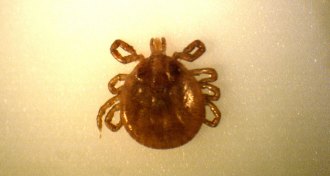 Health & Medicine
Health & MedicineFive reasons to not totally panic about ticks and Lyme disease
We’ve been trained to panic about tick bites and Lyme disease. There are risks to both — and here are some key facts.
-
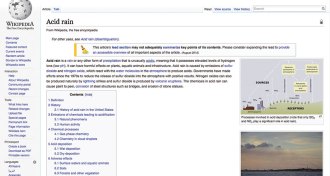 Science & Society
Science & SocietyContentious science topics on Wikipedia subject to editing mischief
Global warming and other politically charged issues are prime targets for sabotage on Wikipedia.
-
 Health & Medicine
Health & MedicineTeen e-cig users more likely to smoke tobacco
E-cigarette use is linked to later tobacco use in teens.
-
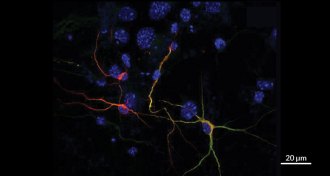 Life
LifeChemical magic transforms skin cells into nerve cells
Just a few chemicals can transform skin cells from Alzheimer’s patients and healthy people into nerve cells.
-
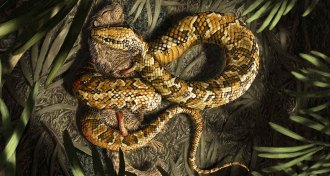 Paleontology
PaleontologyMuseum fossil links snakes to lizards
Scientists have discovered the fossilized remains of the first four-legged snake. The fossil bridges the gap between snakes and lizards.
-
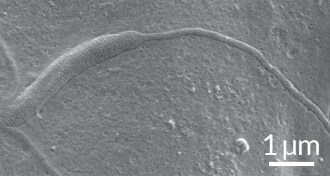 Paleontology
Paleontology50-million-year-old fossil sperm discovered
Ancient worm sperm preserved in 50-million-year-old cocoons from Antarctica set age record.
-
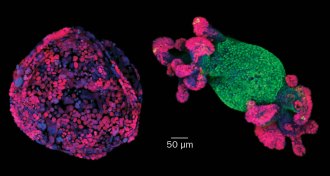 Genetics
GeneticsGenetic switch wipes out tumors in mice
By switching on a single gene, researchers turned cancer cells in mice back into normal intestinal tissue.
-
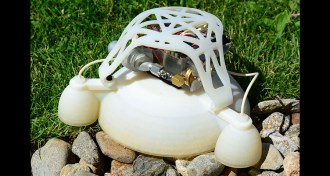 Tech
Tech3-D–printed body helps jumping robot land on its feet
To launch itself into the air, a jumping robot relies on a 3-D–printed body made of a gradient of soft and stiff plastics.
-
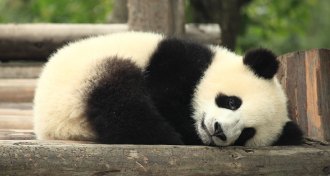 Animals
AnimalsGiant pandas live in the slow lane
Giant pandas burn far less energy than similarly sized land mammals.
-
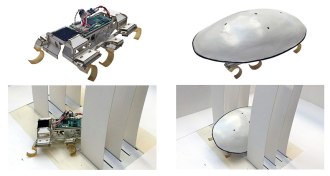 Tech
TechPlastic shell lets roach-bot squeeze through gaps
An arched shell helps a six-legged robot shimmy past obstacles.
-
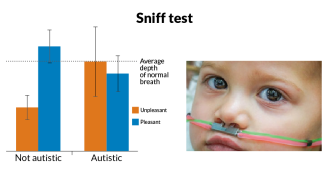 Health & Medicine
Health & MedicineSmell test may detect autism
A quick sniff test could reveal whether or not a child has autism, but some scientists have doubts.
-
 Physics
Physics‘The Science of TV’s the Big Bang Theory’ educates as it entertains
A science book inspired by fictional scientists helps readers understand everything from particle physics to potato electricity.